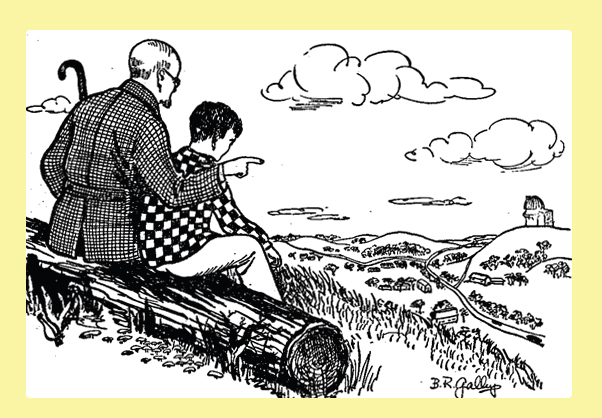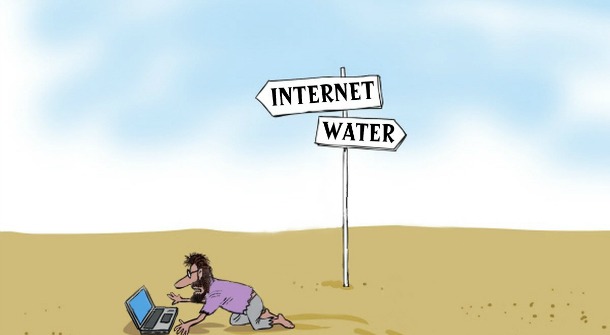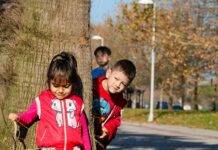LITERATURE
Literature is philosophy—the way we see the world, feel its many layers, and learn and unlearn. How important it is for the child to grow with good literature! And when a sociologist with profound literary sensibilities writes about it we rediscover yet another meaning of education
Dr. Nabanipa Bhattacharjee teaches sociology at sri venkateswara college, University Of Delhi.
[dropcap]A[/dropcap] few years ago a friend invited me to write a general essay on the culture of reading among children. Now, I thought, did children read? Of course, they did. But what did they read, or rather, enjoyed reading?
A major activity of my childhood, I recalled, was reading literature, and I loved it. Not only do I continue to love literature but realise that it is integral to the (formal) education of children (and adults too).While the modern education system does include literature, yet it is treated and taught as just another discipline in the school. The children, as a result, certainly get trained in the discipline. But do they acquire, what we may call, the literary sensibility? In most cases, sadly, they do not. Indeed, the current education system, limited as it is in ideas and scope, provides little or no space for children to acquire the literary sensibility that is, in fact, so urgently required in a time like ours – a time marked by deep vulnerabilities, and the attendant anxieties.

To encourage the growth of literary sensibility we need to develop an expanded understanding of the meaning and purpose of literature. We also have to rethink education along similar lines. Central to our proposal of re-imagining both literature and education is the significance of the philosophical. By the philosophical we do not mean a high, adult, and above all, out-of-the-world and impractical sensibility. Rather, we understand it as something not only real, everyday and life-affirming, but absolutely suitable to be encouraged, particularly through literature, in children.
In other words, we call for, first, an attention to the philosophical in doing literature with children, and second, a philosophically sensitized education system – in terms of goal, curriculum and pedagogy – which is required to support it. Only by combining the two shall we succeed in enabling children to address – ‘combat’ in the language of Pierre Bourdieu– the challenges thrown up by the contemporary human condition.
Now, let us assume that a re-imagined education system is in place. Next, within the given frame, is the issue of teaching literature, inclusive of literary (philosophical) sensibility, to the children. The role of the educator being crucial, let us also take that she (or he) has soundly reflected on the process including key concerns like:
a) what (content) is to be taught, b) how is it to be taught, and c) what is it to be taught for. Following this, she is prepared to engage with say, for example, the children of the first standard literature (English) class of a city school.In all likelihood, her account of the experience would read as follows:
We have a prescribed textbook containing a very small number of carefully selected short stories and poems. Let me narrate what I did, over two classes, with one particularly well-written and illustrated story – Tumku has a Talent by Jayshree Bhat (Amar Chitra Katha, 2011) – about the performance of animals in a Jungle Talent Show (JTS). To start with, I asked the children to do activities each considered to be best at. Neither all activities were confined to the classroom. Nor did all the children manage to perform. But in all, the entire class participated and, enjoyed, either by performing or by helping others perform. Ignoring the modern dictum that children should be encouraged to be independent, I too, by doing the latter, participated. And that was that .I just let the incident be.
In the next class, I began with the story of Tumku (lion cub); there was no indication that: one, I had pre-read it, and two, it could be connected with the previous incident.The story, in brief: in the Annual JTS animals exhibited their dancing, juggling, hopping, and tapping talents. Tumku helped his friends – Rhea Rabbit and Montu Monkey – perform. But he was unable, being unsure of his own talent, to do so. He was embarrassed and sad. At the end, the bespectacled Philostotle Python told the jungle community that Tumku had had a talent for sure, and that was for making others happy. The children cheered. I refrained from the discussion of any kind of “moral of the story”. Instead, I said, in the passing, that we read the story for the simple fact that it made, as was obvious,simple and nice reading.
We do not claim that this account is the finest example of introducing children to the realm of the literary (philosophical). However, it does urge us to reflect upon crucial issues concerning children. The Tumku story handles the matter of success and failure, for instance, by suggesting that they have no uniform definitions. True, but the essence of story rests on the idea (and promise) of unlearning which, we contend,is fundamental to the making of the literary (philosophical) sensibility. Unlearning is a continuous exercise, and it is best to begin early. Of course, the children will unlearn only if adults agree to do the same.So, we can start, can’t we?














